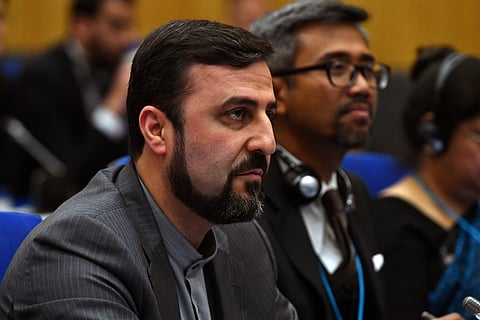

The United Nations Security Council on Friday failed to pass a resolution that would have permanently lifted sanctions on Iran, paving the way for the automatic reimposition of punitive measures under the so-called “snapback” mechanism. The development marks the formal collapse of the 2015 Joint Comprehensive Plan of Action (JCPOA), the landmark nuclear deal that had once offered Tehran sanctions relief in exchange for restrictions on its nuclear program.
The vote, conducted under the JCPOA’s special provisions, saw only Russia, China, Pakistan, and Algeria support blocking the sanctions. Nine members voted against, while two abstained, ensuring that the motion failed. As a result, a broad package of measures—including arms embargoes, asset freezes, and restrictions on sensitive technologies—will automatically go back into effect on September 27.
The outcome effectively resets Iran’s status to its pre-2015 position, when it faced heavy international isolation and economic restrictions. While Russia and China have already declared they will not abide by the renewed sanctions, the move significantly heightens global tensions.
One of the most immediate concerns is whether Israel may use the reimposition of sanctions as a pretext for military escalation. Prime Minister Benjamin Netanyahu is scheduled to travel to Washington on September 29 to meet with U.S. President Donald Trump, just two days after the sanctions officially snap back into place. The timing has fueled speculation about coordinated action, particularly in light of Israel’s strike on Iran in June, which followed an International Atomic Energy Agency (IAEA) declaration of Iranian non-compliance with the Nuclear Non-Proliferation Treaty (NPT).
In Tehran, Deputy Foreign Minister Kazem Gharibabadi responded swiftly, warning that the cooperation framework Iran recently signed with the IAEA in Cairo would be nullified once the sanctions take effect. “The agreement signed in Cairo with the IAEA on September 9 will be considered null and void by Iran if the snapback sanctions are activated and enforced,” he said.
Iranian officials have also hinted that a full withdrawal from the NPT is under consideration should the international community return to the pre-2015 sanctions regime. Such a move would mark a dramatic escalation in the standoff and could trigger further instability in the already volatile Middle East.